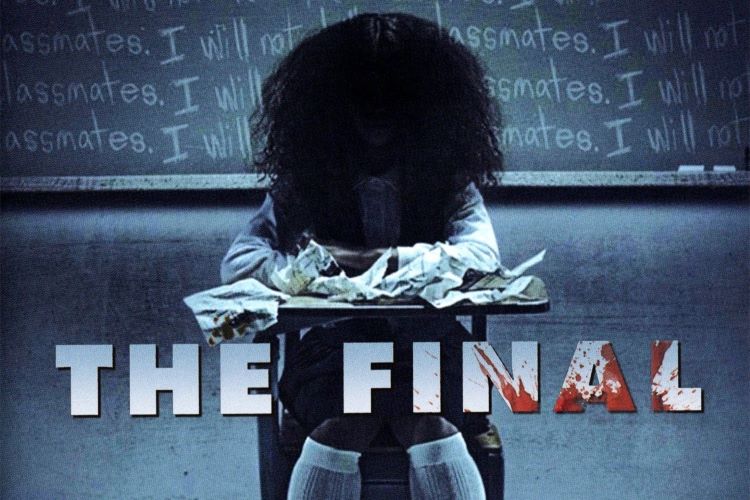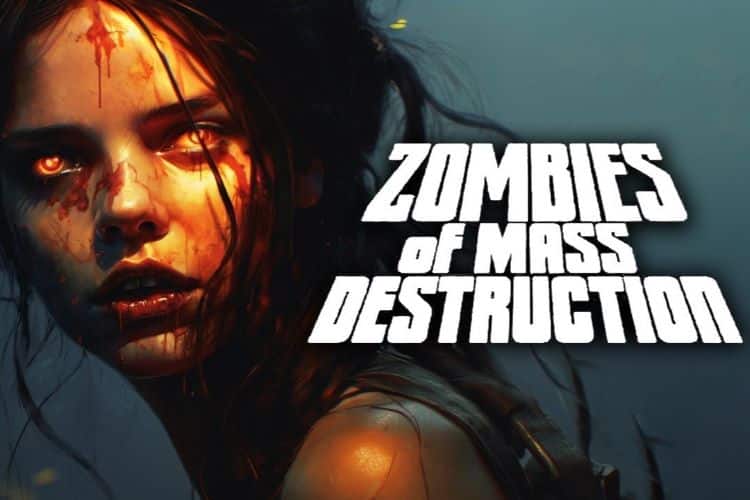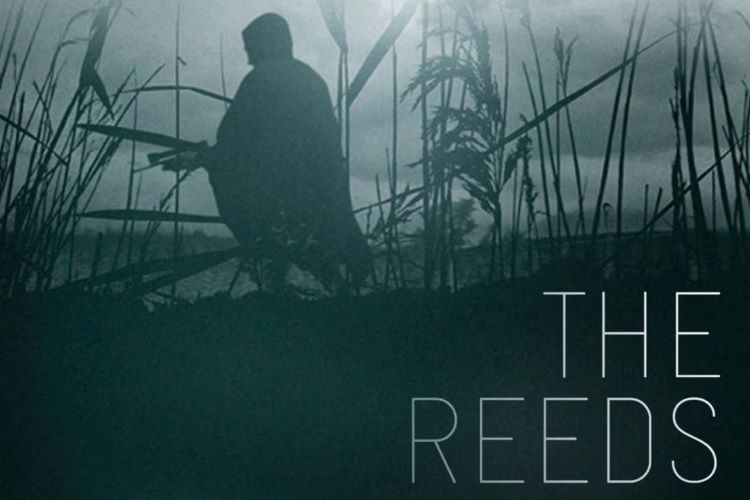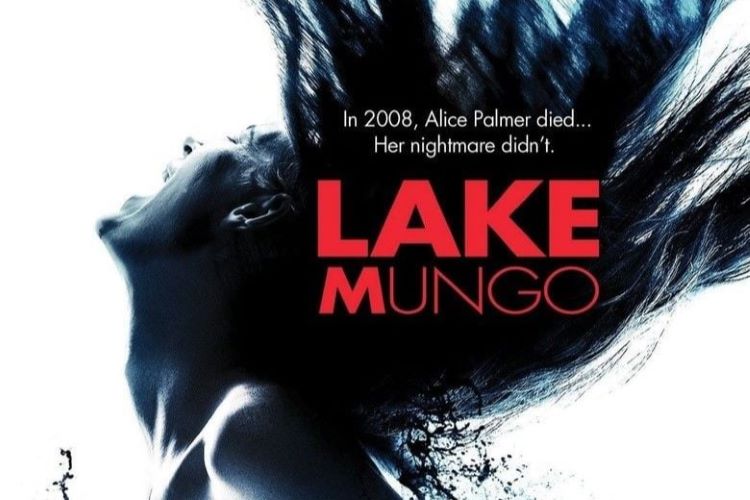What did I do to get here?
Main Cast: Marc Donato, Jascha Washington
Director: Joey Stewart
Each year there are movies produced that are never seen by the public. Their content is considered too graphic, too disturbing, too shocking for general audiences. This is one of those films.
Sometimes a movie stumps you. You watch it, you watch it again, you want to review it, but you just can’t seem to settle on one particular stance or another. Did you like it? Did you not like it? The arguments for both are very strong. It could go either way. That’s the case, for me, with THE FINAL.
Let’s look at the positive.
It’s well-shot. I think writer/producer Jason Kabolati and director Joey Stewart had some really good material to work with. Almost all of Stewart’s choices, visually, work to not only enhance the story but also steer it away from the usual horror movie clichés. I respect that and appreciate the hell out of it.
The score really works great, also enhancing the visuals. And Stewart’s choice to use the banjo during the torture scenes was genius.
Kabolati’s script commits fully to the idea, develops well-rounded characters we sympathize with, and even makes what they’re doing seem perfectly rational. A bit extreme, granted, but it makes sense and you can definitely understand the whys.
As for the negatives, really there are only two, in my mind. But they’re BIG.
The story is this: Dane, Emily, Andy, Jack, and Ravi are the tortured kids in high school. Bradley and Riggs and Bernard and Miles and Heather and Kelli and Bridget are their tormenters. It’s a classic case of the popular jocks beating up the nerds. And the nerds have decided they can’t take it anymore. So what do they do? Kill them? No. Nothing so pedestrian.
Instead they stage a costume party in the middle of nowhere. Everyone is driven to the party, so no one has their own car, they can’t escape. The partygoers are drugged and when they wake up, they’re all chained together on the floor. Then the outcasts start the torture.
They don’t torture everyone, and they state upfront they’re not going to kill anyone. But they make sure it’s a night none of them will ever forget, and they make their tormenters ask the most important question the outcasts have been asking all their lives: “What did I do to deserve this?”
It’s a powerful message, one I think NEEDS to be asked. But is this really the answer? Writer Kabolati says in the commentary he wanted to play off the Columbine and Virginia Tech tragedies, but does this glorify them? Is the lesson we learned from those incidents that it’s okay to take similar measures? In REVENGE OF THE NERDS, the outcasts used their specialties to take the power away from their tormenters. They stripped them of their status, spoke up for themselves, and no one lost any fingers. And I get that was a comedy and this is a horror movie, but the genre doesn’t change the message, only the target audience. The point still remains, at the end of the day, it’s okay to capture the bullies, chain them up, disfigure them, it all balances out, and you won’t suffer any consequences as long as you’re willing to sacrifice yourself in the end.
Really?
In JUNO, we were told teen pregnancy is okay as long as you’re plucky enough and you find a good home for your unwanted child in the newspaper. MTV goes one step further and says teen pregnancy is beneficial because you can become a TV star and get your own show. THE FINAL says if you’re bullied, the answer is torture, then suicide. What’s next?
Then again, I understand it’s just a movie. I mean I didn’t watch FRIDAY THE 13th growing up and think if I go camping I’m gonna get butchered (although it was a distinct possibility–DELIVERANCE says you can’t trust what you might find in the woods, or what might find you). TEXAS CHAINSAW MASSACRE didn’t make me believe EVERY hitchhiker was a murdering psychopath.
Everyone is the hero of their own story, and we all feel, to one degree or another, victimized. So of course we identify with these characters, and we want very much to have the wherewithal to, maybe not go to the lengths they go to, but definitely to do SOMETHING drastic to change our situation. The key is in doing it right.
This is NOT the right way. Killing yourself after a little revenge beating is not the answer to the bullying problem. But I think even that I could have overlooked, in the end, if not for problem number two. The acting.
Marc Donato and Justin Arnold are masters at hamming it up. Arnold’s bully Bradley is definitely over the top and in your face. But it’s Donato who really kills it. At the party, everyone is in costume. Once the “fun” starts, the outcasts don different getups, more menacing masks in order to further intimidate their captives. Donato’s mask is a gas mask, which is always way creepy, but doesn’t leave his features open to interpretation and expression. So he has to rely on his vocal performance and his body language.
And if nothing else, he shows that, while Arnold might be over the top, Donato is stratospheric. So much so I didn’t believe at all this kid was honestly a tortured teen. Theatre student, maybe, but not a disgruntled loner. He’s too dramatic.
I don’t want to lay the failure of a movie entirely at the foot of one actor or another, but Donato’s theatrics absolutely took me out of the movie almost every time he spoke. Oh, and Julin, who played Heather. The first scene between the pretty girls and Emily in the hallway was almost unwatchable.
So what we’re left with here is a well-made movie with a message I can’t fully support, delivered by actors who seriously need to know when to tone it down a bit. The direction is great, I love the way it’s shot, in wide angle with few close-ups, which lets the actors play off each other more fully in each scene, and keeps everyone together, makes the outcasts really feel like they’re together in this, while keeping the captives all grounded, too, in their situation. Visually, THE FINAL works and it’s all to the benefit of the viewer, especially the long-time horror fan who needs something different. There are no jump scares here, and thank God for it. But it’s just got too many instances of yanking me out of the story and reminding me I’m dealing with younger actors in a low-budget movie. And it hurts.
Four stars for execution, but only two stars for performance. Three stars in the end.
Read more 8 Films to Die For reviews

C. Dennis Moore is the author of over 60 published short stories and novellas in the speculative fiction genre. Most recent appearances are in the Dark Highlands 2, What Fears Become, Dead Bait 3 and Dark Highways anthologies. His novels are Revelations, and the Angel Hill stories, The Man in the Window, The Third Floor, and The Flip.







Leave a Reply